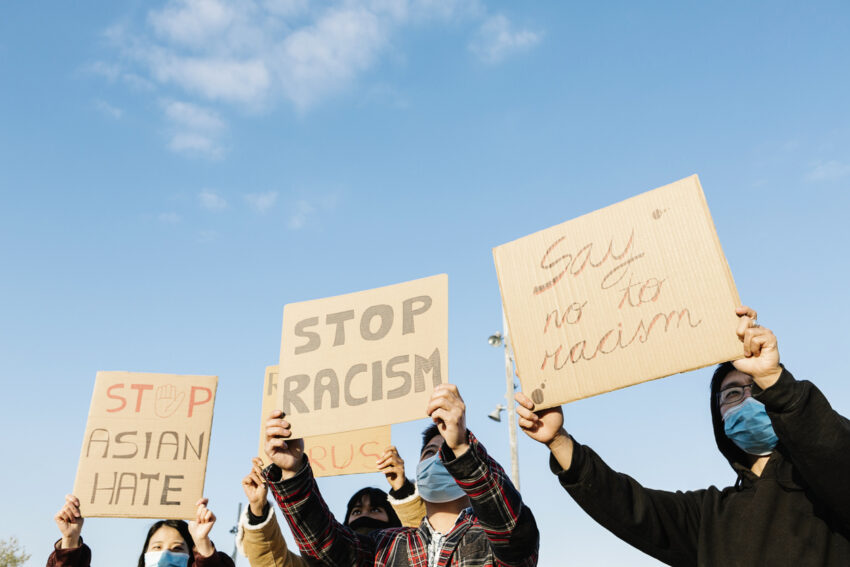
Share On Social!
COVID-19 continues to have a large impact on Latinos and other communities of color, particularly when it comes to cases and deaths.
However, the toll extends beyond the physical impacts of the virus.
Racial and ethnic minority populations are more likely to experience COVID-19–related discrimination than their white counterparts, according to a new study from the National Institute on Minority Health and Health Disparities (NIMHD).
Learn what the study found on COVID-19–related discrimination, the impact of discrimination on health, and what we do to improve the situation for Latinos and others of color.
What Did the NIMHD Study Find on COVID-19-Related Racial/Ethnic Discrimination?
This is the largest study to date on discrimination related to COVID-19.
Dr. Paula D. Strassle of NIMHD conducted the study using data from the COVID-19’s Unequal Racial Burden (CURB) survey, collected data from over 5,000 adults from diverse backgrounds.
They asked if people experienced COVID-19–related discrimination, such as being called names or insulted, being threatened, or hearing racist comments, because someone thought they had COVID-19.
The outcome showed a significant amount of people experienced this form of discrimination.
“Results showed that 22.1% of participants had experienced COVID-19–related discriminatory behaviors, and 42.7% of participants reported that people acted afraid of them,” according to the study.
Groups most likely to experience COVID-19–related discrimination were Asian Americans & Pacific Islanders (AAPI), Native Americans, and Latinos.
“People from groups that have been marginalized, such as those who speak little to no English and those with lower levels of education, were also found to face more discrimination due to the pandemic,” according to the study.
This is in line with many reports on the increase of hate crimes throughout the pandemic, particularly against the AAPI community.
Researchers fear that the pandemic has worsened existing racial tensions in the U.S.
“The study showcases the need for careful and responsible public health messaging during public health crises to help prevent and address discrimination against groups that have been marginalized,” according to the study.
The Effects of Racial/Ethnic Discrimination
Ethnic/racial discrimination can have long-lasting impacts on people of color.
Discrimination impacts educational attainment, which, in turn, impacts future educational, health, social, and career opportunities for Latinos and other people of color.
“Children of color are often treated differently by school personnel; they are more likely to be harshly punished for minor infractions, and teachers may underestimate their abilities. Lower educational attainment among Black and Latino students is linked to an increased risk of institutionalization, poorer physical and mental health, and reduced lifetime earning/economic potential,” according to a Salud America! research review.
Racism also contributes to unfair treatment in the workplace.
“More Latinos than whites also say they have been treated unfairly in hiring, pay, or promotion (26% to 19%,” according to a Salud America! research review.
There are also mental health implications for discrimination.
Exposure to racial and ethnic discrimination on social media is correlated with higher levels of anxiety and depression for young Latino men.
It is clear that more must be done to combat discrimination and racism.
How Can We Fight Racial/Ethnic Discrimination?
While we continue to fight COVID-19, we must also pay attention to another public health crisis – racism.
Decades of racism-infused social, economic, and political systems have led to inequitable communities for Black, Latino, and other people of color, who face high burdens of stress, disease, and premature death.
You can help local leaders declare racism a public health crisis and commit to change.
Download the free action pack, “Create a Meaningful Resolution on Racism as a Public Health Crisis,” from Salud America! at UT Health San Antonio.
The action pack will help you connect with local advocates of color, draft a resolution, start a conversation with local leaders, and build support for a resolution to declare racism a public health crisis and take action for more equitable policies and practices.
By The Numbers
3
Big Excuses
people use to justify discriminatory behavior



